On Air Now
Calm Classics with Ritula Shah 10pm - 1am
8 March 2023, 12:25
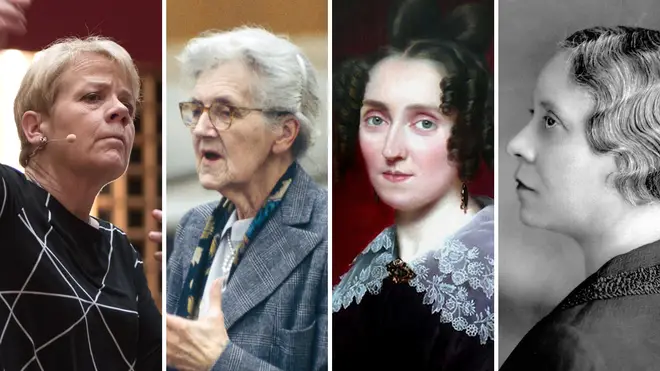
From the 12th through to 21st century, we celebrate 10 extraordinary women who broke new ground and left an indelible mark on the classical music world.
On International Women’s Day, we look at the stories, struggles, and world-changing successes of 10 incredible women in the history classical music.
One of the first known composers in the history of Western music, Hildegard of Bingen was a 12th-century Benedictine nun, theologian, mystic, scientist, and composer, with an extraordinary musical vision.
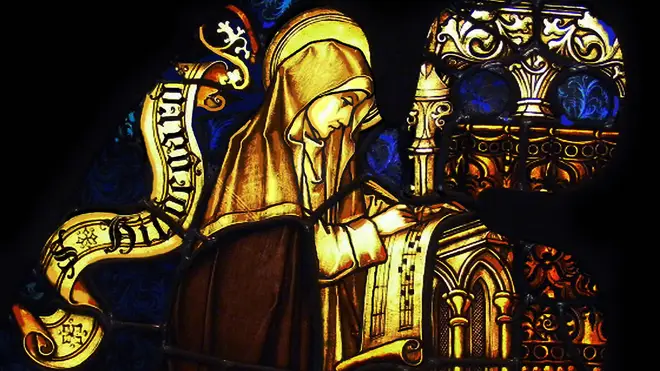
For most of her life, she lived in an enclosed hilltop monastery. There, she wrote sublime, haunting songs for her nuns to sing at their devotions. Hildegard absolutely refused to behave conventionally, going on preaching tours – a highly unusual practice for women at the time – in a male-dominated church.
Around 800 years after her death, interest in her music began to grow. In 1979 came the first English performance of four of her incredibly vivid songs. In 2012, Hildegard was canonised and named a Doctor of the Church.
Read more: Discover the life and music of Saint Hildegard of Bingen >

'Nunc gaudeant' by Hildegard of Bingen, sung by Voice
This incredible performance comes from the vocal trio Voice. Their new album is ‘Hildegard Portraits’ and is full of stunning music from Hildegard alongside works by composers of today.
French harpsichordist and composer Élisabeth Jacquet de la Guerre was a musical pioneer at the height of the French Baroque era. Her family was musical, and from the age of five Élisabeth was already singing and playing the harpsichord in the Court of Louis XIV. She is considered the first woman to have composed an opera in France, which was titled Céphale et Procris and quilled in 1694.
Her chamber music for harpsichords and violins are gems, combining the qualities of both French and Italian Baroque styles. She’s particularly noteworthy as she composed across so many forms and styles in her career. Her keyboard music is being championed in a new recording by London-based Spanish pianist Antonio Oyarzabal, who performs her Pieces for Harpsichord on a modern instrument.

Elisabeth Jacquet de la Guerre: Sonata #2 in B-flat
Farrenc was a French composer, pianist and teacher, and one of the most influential musical figures of the 19th century. She took to piano from a young age and applied for the prestigious Paris Conservatory, aged 15.
After a stint as a concert pianist, in 1842 she was hired as a professor of music at the Paris Conservatory – the only such appointment for a woman that century. She stayed at the conservatoire for 30 years, where she developed a reputation as one of the finest piano professors in Europe and trained some of the great virtuosos of the age.
Farrenc was paid far less than the male professors at the conservatory, and fought for parity with her colleagues. It was a long fight, and her compositions formed a key part of her campaign. She succeeded and was able to take home a pay check of the correct size. And so she should have, too...

Esther Abrami plays Louise Farrenc’s evocative ‘Andante’ with Her Ensemble | Classic FM
A 20th-century composer and suffragette, Ethel Smyth was a key figure in music and women’s rights, acclaimed for her skill at “writing conversations in music”.
She wrote six operas, of which The Wreckers has been called “the most important English opera composed during the period between Purcell and Britten”. For more than a century, her opera Der Wald was the only opera by a woman composer to have been staged at New York’s prestigious Metropolitan Opera.
Smyth was imprisoned in 1912 for throwing a rock through a window of the Houses of Parliament while protesting in favour of women’s rights. The story goes that English conductor Sir Thomas Beecham, a great admirer of Smyth’s music, visited her in prison and found her conducting her fellow inmates, using a toothbrush as a baton.
Read more: Ethel Smyth receives first Grammy nod 90 years after premiere >
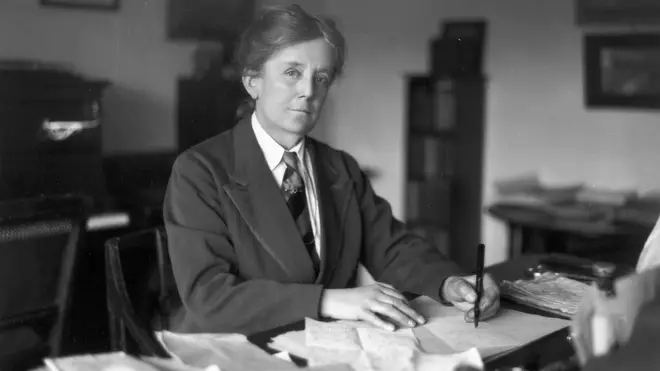
At the turn of the 19th century, Amy Beach made history as the first American woman to publish a symphony. Her ‘Gaelic’ Symphony, published in 1896, was premiered by the Boston Symphony Orchestra, no less.
Beach showed extraordinary musical flair from a very early age. Her parents told stories of young Amy harmonising her mother’s lullabies aged two and composing waltzes in her head aged five. Soon, she moved onto Beethoven and made her concert hall debut aged 16.
As a 19th-century woman, Beach struggled to be granted the same opportunities as her male counterparts. For much of her life, she used her position as the country’s best-known female composer to nurture other women. She once said: “Music is the superlative expression of life experience, and woman by the very nature of her position is denied many of the experiences that colour the life of man.”
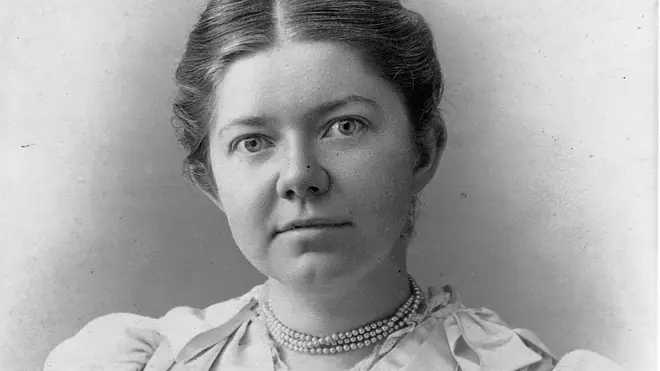
Rebecca Clarke was a violist, performer and a composer who led the way in getting women the places they deserved on concert hall stages and in orchestras in her day. In 1912, she became the first woman to play in Henry Wood’s Queen’s Hall Orchestra, and she performed internationally.
She didn’t compose prolifically, but what she did write was dazzling – her impressionistic Viola Sonata showcases the instrument’s incredible versatility and virtuosity, shedding its reputation as a soft accompanying instrument.
Read more: This is one of the greatest pieces ever written – but you’ve probably never heard it >

Rebecca Clarke - Viola Sonata
Florence Price was one of the first women to have a symphony performed by a major US orchestra, and the first Black woman to do so: she made history in 1932 when Chicago Symphony Orchestra performed her Symphony in E minor.
Price wrote numerous orchestral works, chamber pieces and songs, and was also a pianist and teacher. Due to her race and sex, she didn’t get the recognition she deserved in her own lifetime, but new music of hers was recently discovered and she’s finally getting the recognition she deserves.
Read more: 10 of Florence Price’s best pieces of music >

Chineke! Orchestra - Florence B. Price Symphony no 1 in E minor, 1st movement
A prolific composer and conductor, and teacher to some of history’s greatest music-makers, Boulanger was an unstoppable force in 20th-century music.
She wrote several choral, chamber and orchestral works, was the first woman to conduct many major US orchestras, and her star roster of pupils included Leonard Bernstein, Philip Glass and Daniel Barenboim, no less.
Boulanger’s passion for pedagogy followed the tragically early death of her sister Lili Boulanger, who was then considered one of France’s most exciting young composers. When Lili died aged just 24, her elder sister lost her taste for composing. Instead, she decided to dedicate herself to a lifetime of teaching and nurturing others in music.
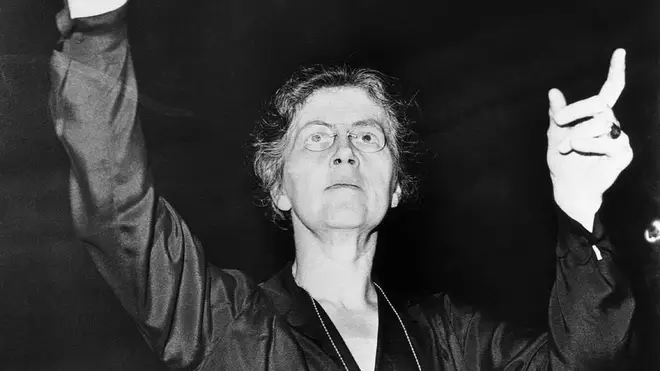
Few classical artists share the deep musical achievements or cult status as Martha Argerich. Born in Buenos Aires, Argentina, she took up the piano aged five, and was soon hailed as a prodigy, performing in public. At 16 years old, she stormed the world, winning the Geneva International Music Competition and the Ferruccio Busoni International Competition within just three weeks.
What followed is a career as a recording artist and concert pianist that’s utterly unparalleled. Every performance shines with her moody, unpredictable genius. She has also fostered countless younger players and new generations of talent. As the classical music world rose to glitzy heights over the last 60 years, she has anchored an entire industry in deep musicality, integrity and inspiration.
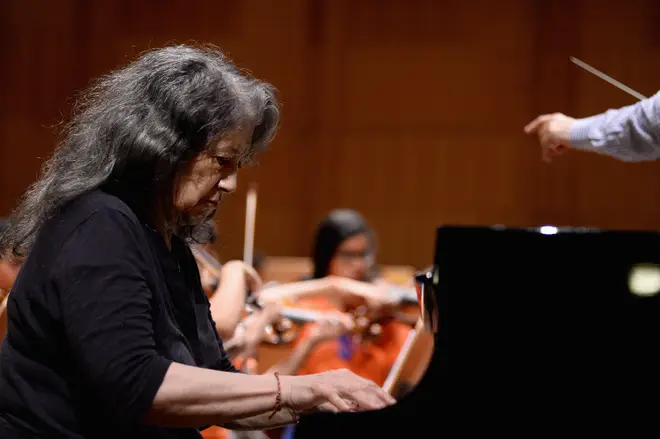
Marin Alsop is one of the world’s best conductors, having taken her baton to the helm of most of the US and Europe’s top orchestras, and served stints as chief conductor of orchestras like Vienna Radio Symphony Orchestra, São Paulo Symphony Orchestra, Bournemouth Symphony Orchestra and Baltimore Symphony.
In 2011, she became the first woman to conduct at Teatro alla Scala in Italy in its 230-year history. Alsop is also a violinist, including in the New York Philharmonic earlier in her career, and she’s an inspiring mentor who leads life-changing education initiatives that inspire people with music all over the world.

Marin Alsop masterclasses: what is conducting?